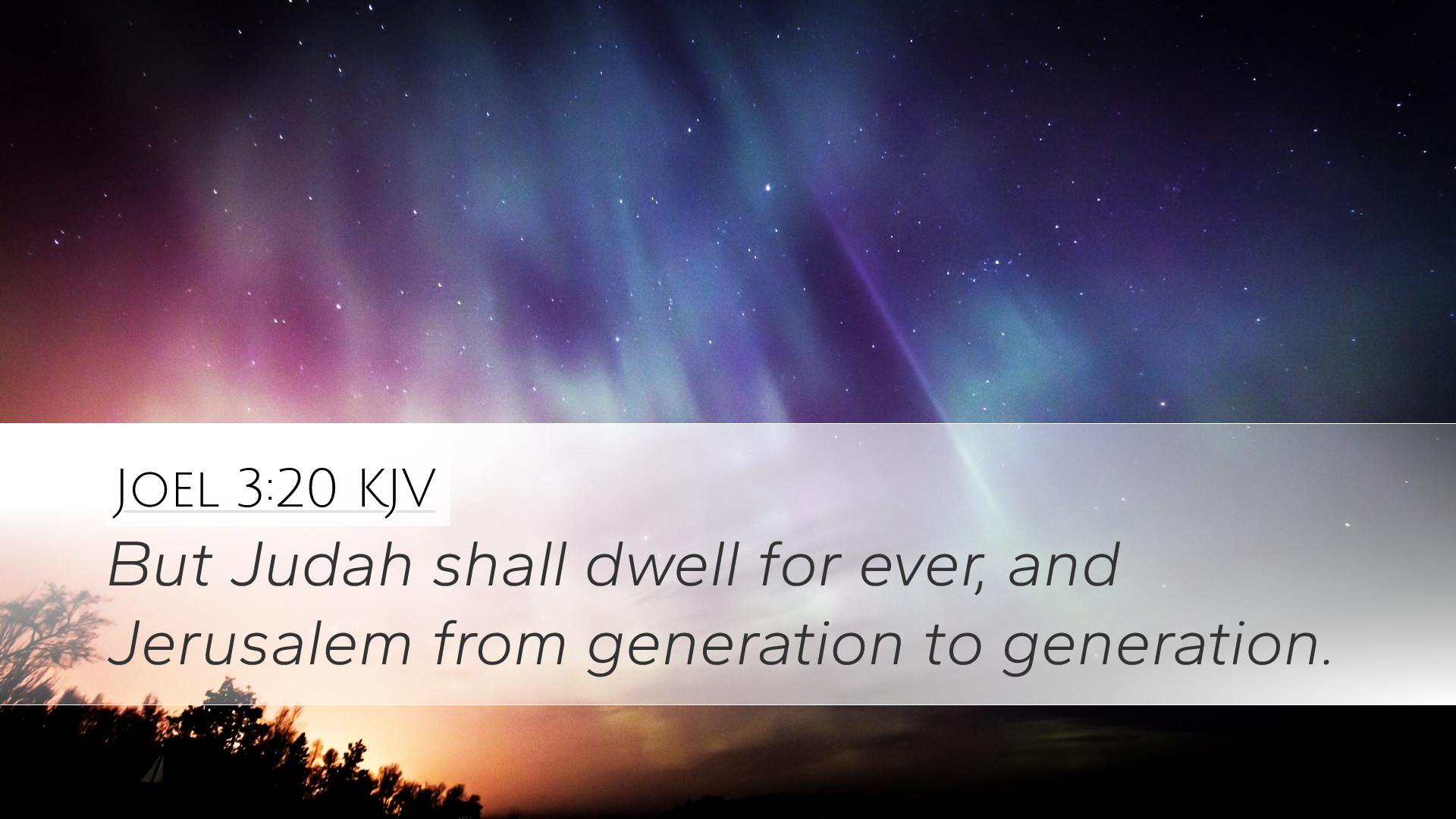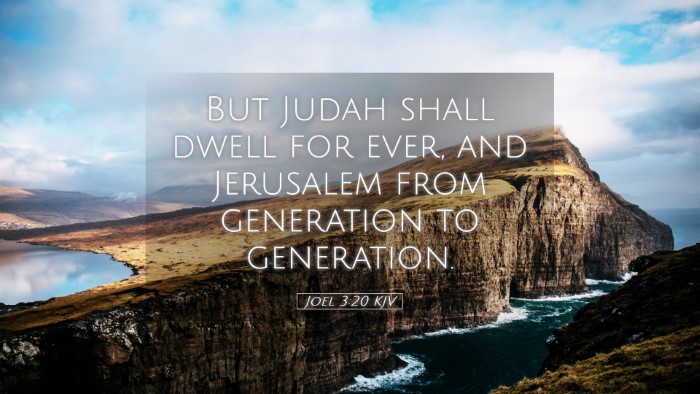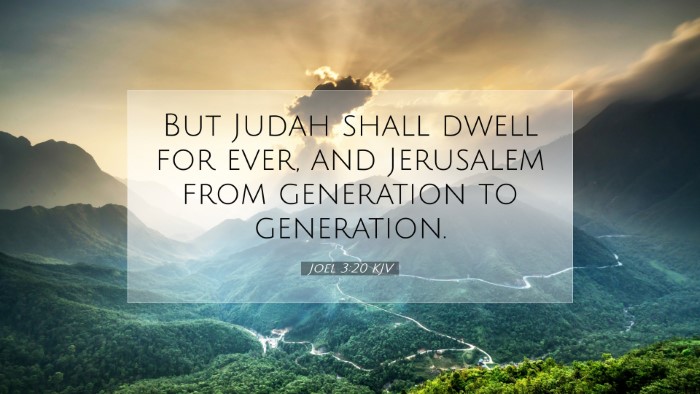Old Testament
Genesis Exodus Leviticus Numbers Deuteronomy Joshua Judges Ruth 1 Samuel 2 Samuel 1 Kings 2 Kings 1 Chronicles 2 Chronicles Ezra Nehemiah Esther Job Psalms Proverbs Ecclesiastes Song of Solomon Isaiah Jeremiah Lamentations Ezekiel Daniel Hosea Joel Amos Obadiah Jonah Micah Nahum Habakkuk Zephaniah Haggai Zechariah MalachiJoel 3:20
Joel 3:20 KJV
But Judah shall dwell for ever, and Jerusalem from generation to generation.
Joel 3:20 Bible Commentary
Commentary on Joel 3:20
Verse Analysis: Joel 3:20 states, “But Judah shall dwell forever, and Jerusalem from generation to generation.” This verse culminates the prophet's assurance of hope and restoration for the people of God. It emphasizes the permanence of God's covenant with His people and the eternal nature of Jerusalem as a sacred place.
Historical Context
The book of Joel addresses the plight of the people of Judah following a devastating locust plague, symbolizing God’s judgment. Scholars note that the prophecy not only discusses impending judgment but also the subsequent restoration, which is a vital theme in prophetic literature. Joel’s prophecy signals hope amid crisis, showcasing God's unwavering faithfulness.
Theological Implications
The verse conveys several theological themes:
- Covenantal Promises: God’s promises to Judah are depicted as eternal. While Israel faced destruction, the assurance in this verse is that God will remember His covenant.
- Eschatological Significance: The notion of dwelling forever implies an eschatological view where God's people will ultimately prevail.
- Restoration of Jerusalem: Jerusalem is portrayed as a central city for divine worship and a symbol of God’s presence among His people. This restoration can be viewed both physically and spiritually.
Commentary Insights
Matthew Henry's Commentary
Matthew Henry emphasizes the certainty of Judah's everlasting dwelling. He argues that this statement solidifies God’s faithfulness and His determination to preserve His chosen people through trials. Henry notes that the mention of Jerusalem carries weight; it’s not just a physical location but a spiritual bastion of God’s presence and glory.
Albert Barnes' Notes
Albert Barnes focuses on the prophetic nature of Joel's message. He underscores that the permanence of Judah and Jerusalem suggests a future restoration, highlighting the theological implication of God’s redeeming work through history. Barnes propounds that even through the darkest moments in Hebrew history, God maintains a remnant to fulfill His promises.
Adam Clarke's Commentary
Clarke presents a detailed analysis of the verse by linking it to New Testament implications, suggesting that the ultimate fulfillment of "Judah dwelling forever" is realized in the coming of Christ and the establishment of the New Jerusalem. He points to the continuity between Old Testament prophecies and their realizations in the New Covenant.
Practical Applications
Pastors and theologians can draw several practical applications from this verse:
- Renewed Hope: In times of despair, the assurance of God’s unchanging nature offers hope to the faithful. Encouraging congregations to remember God’s covenant can strengthen their faith in difficult times.
- Understanding God's Promises: Emphasizing that God's promises are not confined to a specific time frame encourages believers to remain steadfast, knowing that God’s ultimate plan unfolds through history.
- Significance of Community: The dwelling of Judah reflects the importance of communal worship and fellowship in the life of the church today.
Conclusion
Joel 3:20 serves as a profound reminder of God’s everlasting covenant with His people. Through the insights of various commentators, it becomes clear that the themes of restoration, permanence, and hope resonate through generations. Both pastors and scholars can glean not only theological significance but also the profound encouragement that comes from knowing that God's people will dwell in His presence forever. This verse stands as a testament to God's faithfulness and invites believers to participate in the unfolding narrative of redemption.


